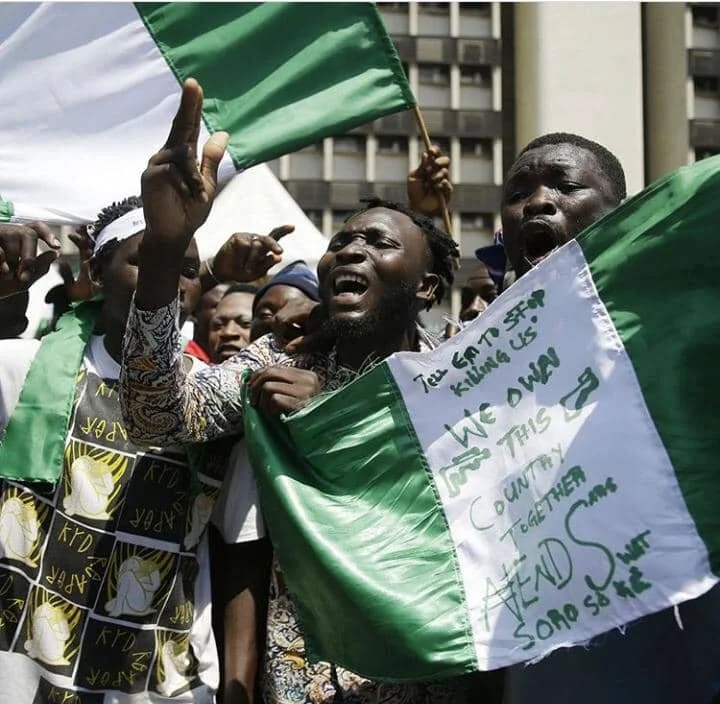Statement On The Nigerian Police Brutality
In 2017, a campaign to stop police brutality in Nigeria was initiated on Twitter. The hashtag EndSars was used calling for the dismantling of the Special Anti-Robbery Squad. The squad was created in 1992 by retired police commissioner Fulani Kwajafa. By the early 1990s, armed robbers and bandits were terrorizing Lagos and southern Nigeria.
Simeon Danladi Midenda was the police officer who was in charge of the anti-robbery unit of the criminal investigation department in Benin, southern Nigeria, at the time. He had some success in combatting armed robbery, earning a recommendation from the then inspector general of police.
Midenda was transferred to Lagos because there was a high rise in crime and was tasked with uniting the three existing anti-robbery squads operating in the former federal capital into one unit in a bid to break the stronghold of armed gangs. As the new sheriff in town, equipped with 15 officers and two station wagons, Midenda formed an amalgamated unit and named it the Special Anti-Robbery Squad (SARS) in 1992.
The squad was formed to combat armed robbery and other serious crimes. Throughout October 2020, the campaign to end SARS was revitalized. This is because there is an overwhelming sea of evidence that has exposed the rot that is at the core of the operations of SARS. A report that was released in 2016 by International Human Rights watchdog, Amnesty International.
The report states that “Torture and other forms of cruel, inhuman or degrading treatment or punishment are absolutely prohibited in all circumstances under international law. No exceptional circumstances whatsoever, whether a state of war or a threat of war, internal political instability or any other public emergency, may be invoked as a justification of torture.
Torture can be physical or mental. It is not enough for states to simply prohibit and criminalize torture under national law; states must take a range of further measures to protect people and prevent these forms of violation. International human rights law and standards are a series of safeguards, which, if implemented, would reduce the isolation of detainees and maximise the opportunities for the actions of the authorities to be monitored, and to intervene, if torture is alleged.
The Nigerian Constitution and other domestic laws also provide several similar safeguards for suspects. Both international human rights law and Nigerian law also prohibit the use of statements obtained through torture or other ill-treatment. Despite these provisions, however, Amnesty International’s research indicates that torture and ill-treatment remain routine practices in SARS detention centers. Amnesty International has received persistent reports of torture and other ill-treatment of detainees in SARS custody.”
The youth café condemns these draconian measures and tactics that have been used by SARS in their bid to maintain law and order. Nigeria is a state party to the 1966 International Covenant on Civil and Political Rights (ICCPR). Article 21 governs the right of peaceful assembly, providing that:
“The right of peaceful assembly shall be recognized. No restrictions may be placed on the exercise of this right other than those imposed in conformity with the law and which are necessary in a democratic society in the interests of national security or public safety, public order (ordre public), the protection of public health or morals or the protection of the rights and freedoms of others. ”
Further, Nigeria is a state party to the 1981 African Charter on Human and Peoples' Rights. Article 11 provides as follows:
“Every individual shall have the right to assemble freely with others. The exercise of this right shall be subject only to necessary restrictions provided for by law in particular those enacted in the interest of national security, the safety, health, ethics and rights and freedoms of others. ”
Nigeria is a state party to the 1998 Protocol on the African Court on Human and Peoples' Rights, but has not allowed the right of petition to the Court by individuals and non-governmental organizations.
The confrontation between SARS and peaceful protesters, where dozens were injured and killed has become the hallmark for any clash between SARS and the general Nigerian public. These murders and other barbaric acts that the world has witnessed through gory images and videos shared on social media amount to crimes against humanity.
We condemn any form of violence against protesters, majority of whom were youth whose only interest was and still is social reform. We encourage our members to participate in any peaceful march and protest where the end goal is to achieve social good. We stand with Nigeria in their quest to end police brutality.
Antony Karanja W. Research, Project Design & Development at The Youth Café.
For media inquiries or interviews with the author, please contact us.


